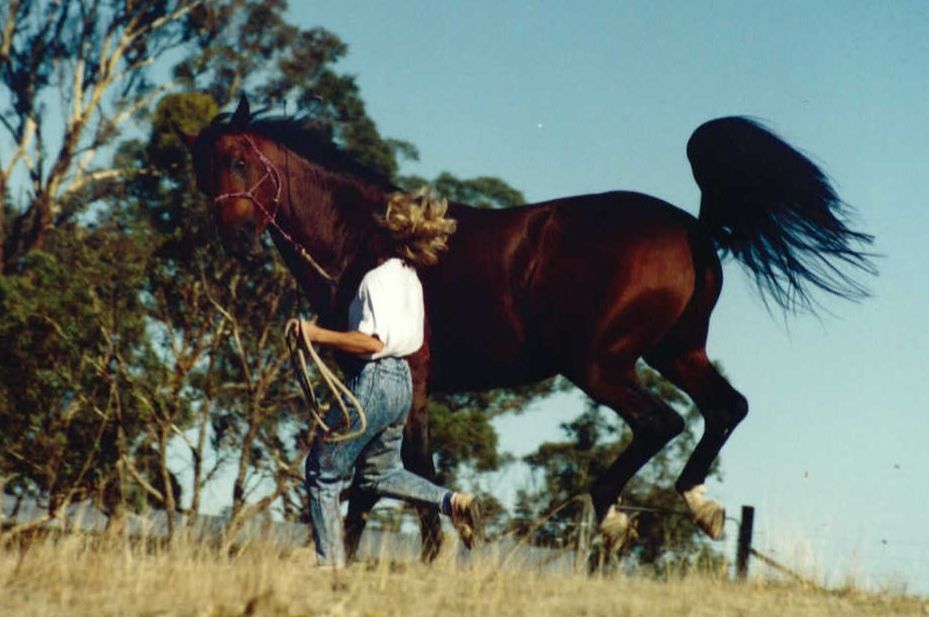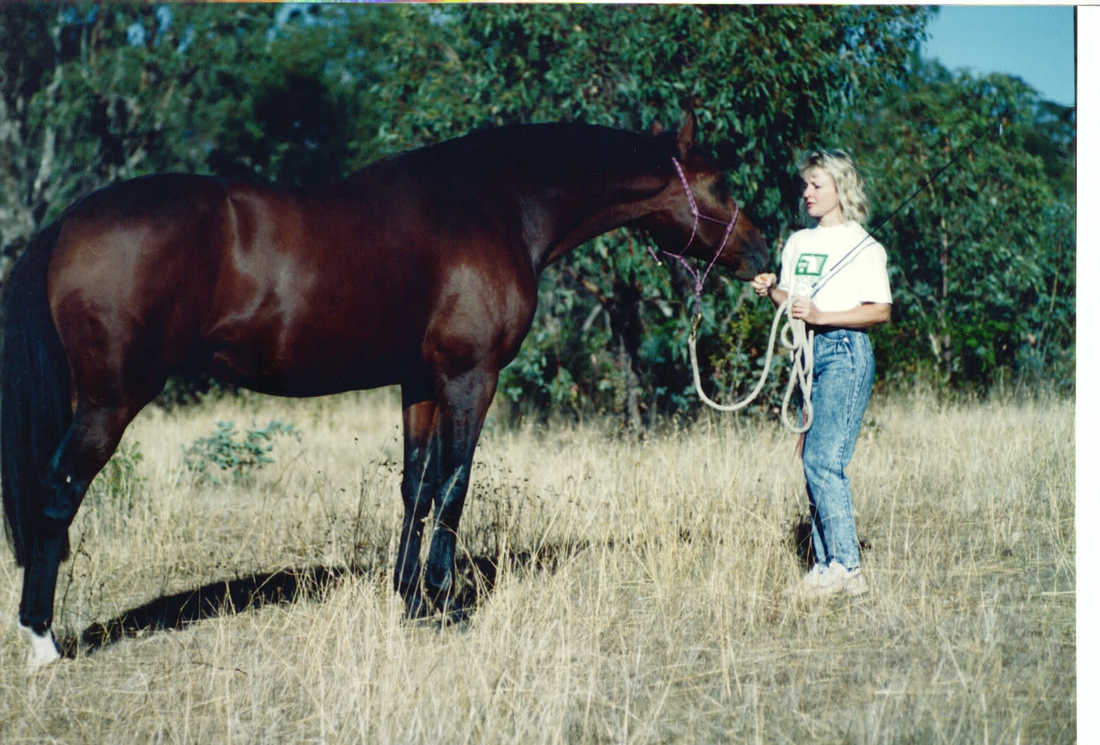|
Introduction: it was a pleasure, an honour and something of a challenge to be interviewed by the dynamic, respected and prolific Scottish blogger, Fiona McVie. Fiona's blog, which is called authorsinterviews, is well known across the literary community and especially among readers and writers – hardly surprising since she has interviewed thousands of authors over the last four years – no doubt with many more to come. Fiona: Let's get you introduced. Your name is Joanne Verikios and you're 61. Tell us a little about your self, i.e. where are you from, your education, family life etc.
I grew up in Toowoomba, Queensland, the eldest of three children and the only one who was besotted with horses. We were blessed with amazing parents and my childhood was very happy. I graduated from the University of Queensland with an Honours Degree in Russian. Despite that, I joined the Australian Public Service and spent more than three very full and fulfilling decades in a range of interesting Departments before resigning in 2010. After a bit of a rest and regroup, I reinvented myself as a businesswoman and author. Highlights included getting my first pony, working in Antarctica, representing Australia in the sport of powerlifting and breeding a champion Warmblood stallion. Fiona: Tell us your latest news? Okay, every now and then, a situation crops up that cries out for resolution - and fast. The problem, or rather the challenge, is that these situations usually relate to things which are awkward to deal with. As a result, we then to adopt a wait and hope strategy where we wait and hope that the issue will just go away.
So how is that working for you? Are you waiting and hoping that your horse will stop biting, stop fidgeting while you mount, stop being difficult to load? Maybe he will grow out of it? That's a bit like waiting and hoping that a co-worker will wake up to the fact that they have bad body odour, or that your kids will spontaneously stop leaving their clothes and toys on the floor. It's not going to happen any time soon without a word, action or intervention on your part. What will happen, though, is that you get more and more frustrated and maybe angry, to the point where one day you might explode into a disproportionate reaction. We don't want that. So what's the answer? Well, the first step in solving a problem lies in acknowledging that there is a problem (please understand that I am using the word "problem" in a loose, generic sense. Feel free to mentally substitute another word like "issue" or "situation" or "challenge" or whatever if you prefer). Once we have our problem defined, we need to act on it and fast. Believe me, having the conversation or initiating the response will not get any easier with the passage of time. The opposite is true: the longer you leave it, the more difficult and uncomfortable it will be for all concerned. Imagine that you notice your new employee's B.O. on day one and every day after that but say nothing until weeks have gone by. Do you think they will thank you for not making them aware that they were offending you and who knows who else for all that time? No. Do you think that your attitude to and therefore your relationship with them won't be influenced because they aren't nice to be near? No. Do you think other colleagues won't also be affected and resentful? No. Now during my long career as an executive, I have had to have many tough, delicate and downright embarrassing personal conversations with colleagues on everything from bad breath to smelly feet, not to mention a fascinating range of behavioural quirks. While neither of us enjoyed these little chats at the time, they always ended with the person involved thanking me for telling them and taking steps to remedy the situation. It may take guts, but it's worth it. It's the same with your horse, whether you have a foal, a colt, a filly, a mare, a gelding or a stallion. I know, because I've had them all! Firstly, the longer you delay taking action, the more potentially difficult the conversation will be. Secondly, if your horse is exhibiting some behaviour that irks or hurts you, letting it continue is counter-productive and can get dangerous. It will also erode your relationship and weaken the bond between you. Not to mention reducing the value of your horse in the eyes of others. Thirdly, "bottling up" our frustrations never ends well, whether we're dealing (or failing to deal) with horses or humans or other things in our lives. One day the cork will pop under pressure and we are horrified to find ourselves saying and doing things that would never have been the case if we had acted sooner. Remember all those old sayings about nipping things in the bud and a stitch in time saves nine? They're true. Another classic is that prevention is better than cure and in this case, we're talking about preventing budding habits from getting established. Take nipping, for instance, which probably began as lipping and licking and can escalate into biting. No matter what you need to address, I want to offer you a few tips to make it easier on all concerned.
If you stick to those seven things, problem solving with your horse won't be a difficult as you may have thought. Thank you for reading to the end. If you enjoyed this post and found it of value, why not like it, share it and recommend it to your friends? And please contact me if there are questions I can help you with. |
From a very early age I have been able to tune in to what horses and ponies were thinking and what they were likely to do next.
Archives
September 2020
Categories
All
|





 RSS Feed
RSS Feed